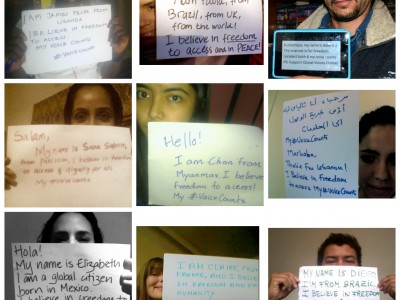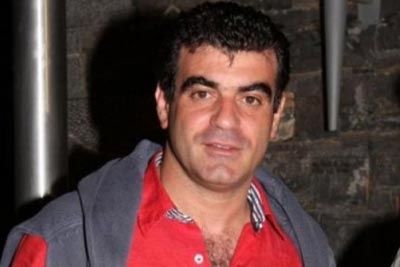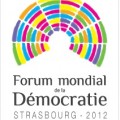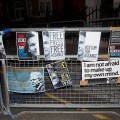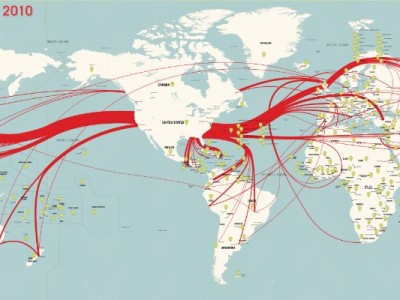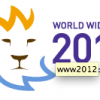Stories about Western Europe
Global Voices Where Every Voice Counts
The idea that every voice counts is one that is very close to the notion of Global Voices as a platform and as a community. As netizens unite to have their voices heard when the world's authorities argue on who should run the internet, we decided to ask our diverse community to participate and speak out on issues that matter to them and look back at issues we have covered over the year bearing in mind that every voice counts.
Portugal: Activist blog silenced by Google
On the day of Portugal's general strike, Google's Blogger took down an activist blog maintained by one of Portugal's largest organizations advocating for "precarious" workers. The group suspects the move was motivated by allegations of defamation by a Portuguese company, accused of abuses by a commenter.
Spain: Journalists Fined After Revealing Corruption in Catalonia
Marta Sibina and Albano Dante, editors of the citizen media magazine Cafè amb Llet, have been fined 10,000 euro for libel. They uploaded to YouTube a video strongly criticizing the lack of transparency in public healthcare financing in Catalonia, implicating Josep Maria Via, president of Barcelona MAR Health Park Consortium and healthcare advisor to Catalan President Artur Mas.
Greek Journalist Arrested for Publishing List of Alleged Tax Evaders
Greek journalist and editor of Hot Doc magazine, Kostas Vaxevanis, tweeted his arrest and posted a video message [el] a few hours after his magazine published a leaked list of over 2,000 names of Greeks with bank accounts in Switzerland, allegedly the “Lagarde list” that Greek governments had misplaced for years. http://fr.rsf.org/IMG/mp3/kostas_vaxevanis_27et_28_10_2012_sync.mp3Podcast:...
Greece: Public TV Journalists Fired After Criticizing Minister
On October 29, two journalists, Kostas Arvanitis and Marilena Katsimi, were fired by the Greek Public Television (ERT) after analyzing claims by British newspaper The Guardian of police torture of Greek anti-fascist protesters in Athens, and criticizing the Greek Minister of Public Order. Explore this and other recent censorship examples.
France: Photos and Impressions from the World Forum for Democracy 2012 in Strasbourg
The first World Forum for Democracy took place in Strasbourg, France, from October 5 - 11, 2012. The co-editor of Global Voices in French was in attendance and reported on the conversations that took place.
Assange Asylum Granted After Threats from UK Authorities
This morning, Thursday 16 August, 2012, in a press conference streamed from the website of the Ecuadorian Ministry of Foreign Affairs, Minister Ricardo Patino declared that the country would grant asylum to the Founder and Editor of WikiLeaks, Julian Assange. This comes after threats by UK authorities to remove Assange from the Embassy.
European Telco Proposal to ITU: A Threat to the Open Web?
A group of European telecommunications companies has made a proposal for global Internet regulation that could fundamentally alter the free flow of information online and undermine Internet neutrality. Parts of the proposal could disadvantage independent creators and content producers, particularly those in less-developed countries.
London Olympic Official Website Files its ICP Record in China
A number of Chinese netizens noticed that the London 2012 Olympic Official Website: london 2012.com has filed its Internet Content Provider (ICP) record in China. At the bottom of the website, the filing number is written in light grey colour: ICP filing number(京ICP备12028602号) Many are astonished by such act as...
How-To: Build an Anti-ACTA-Campaign
During the past five months, our small german NGO Digitale Gesellschaft e.V. has been actively campaigning against ACTA. Our main goal has been to create a broad coalition of organisations and people protesting against ACTA for different arguments, to communicate the criticism against ACTA in a comprehensive way as well...
Internet Regulation and the ITU: Civil Society Must Be Heard
Since its infancy, the Internet has benefited from a lightweight and decentralized approach to governance—a combination of targeted government regulation, technical coordination by companies, and a number of formal and informal multistakeholder organizations to help guide the Internet’s development, such as the IETF, W3C, and the IGF, just to name...
Netherlands: First country in Europe with net neutrality
The Netherlands is the first country in Europe to implement net neutrality it in its law. Together with the net neutrality provisions, it passed privacy protections for users against wiretapping and disconnection by the Internet Service Providers (ISPs).
Tim Berners-Lee: Protect the Open Web! #WWW2012
On April 16-20, 2012 the 21st International World Wide Web Conference (#WWW2012) gathered in Lyon, France to discuss matters of global concern for the Internet and the Web. A major highlight was an inspiring keynote by Tim Berners-Lee, the inventor of the World Wide Web.
Big Brother Awards Requite Privacy Invaders
The Big Brother Awards created by the organisation Privacy International in the United Kingdom to shame privacy invaders are now held in many countries across Europe and around the world. Germany held their 2012 ceremony only few weeks ago.
How Should We Govern the Internet? Livestream of Global INET Forum 2012
An important meeting on Internet governance issues is taking place in Geneva, Switzerland from April 23-23, 2012. Participate remotely to follow discussions on privacy, net neutrality, IPv6, security, digital content and innovation, human rights and free speech.
New Book on Global Struggle for Internet Freedom
How do we ensure the Internet develops compatibly with democracy? And how do we become active “netizens” who take responsibility for our digital future? This is the subject of Rebecca McKinnon's new book: "Consent of the Networked: The Worldwide Struggle For Internet Freedom."
What Does Twitter’s Country-by-Country Takedown System Mean for Freedom of Expression?
Yesterday, Twitter announced in a blog post that it was launching a system that would allow the company to take down content on a country-by-country basis, as opposed to taking it down across the Twitter system. Eva Galperin explains what the new system will, and will not, allow.
International Privacy Day: Fighting Data Retention Mandates Around the World
This January 28 marks International Privacy Day. Different countries around the world are celebrating this day with their own events. In EFF, we are calling on governments to repeal mandatory data retention schemes. Mandatory data retention harms individuals’ anonymity, which is crucial for whistle-blowers, investigators, journalists, and for political speech....
Internet Blackout Day Fires Up Digital Rights Activism Around the World
Yesterday was a defining moment for the global Internet community. The effects of the massive online blackout in protest of U.S. Internet blacklist legislation, SOPA and PIPA, were felt around the world as countless websites joined in a global action against over-broad and poorly drafted copyright laws.
Highlights from the 28th Chaos Communications Congress
The Chaos Communications Congress is the annual meetup of Germany's Chaos Computer Club, one of the oldest hacker collectives in the world. The programme mixes technical talks from the security and free software worlds with talks about online rights and hacktivism.

